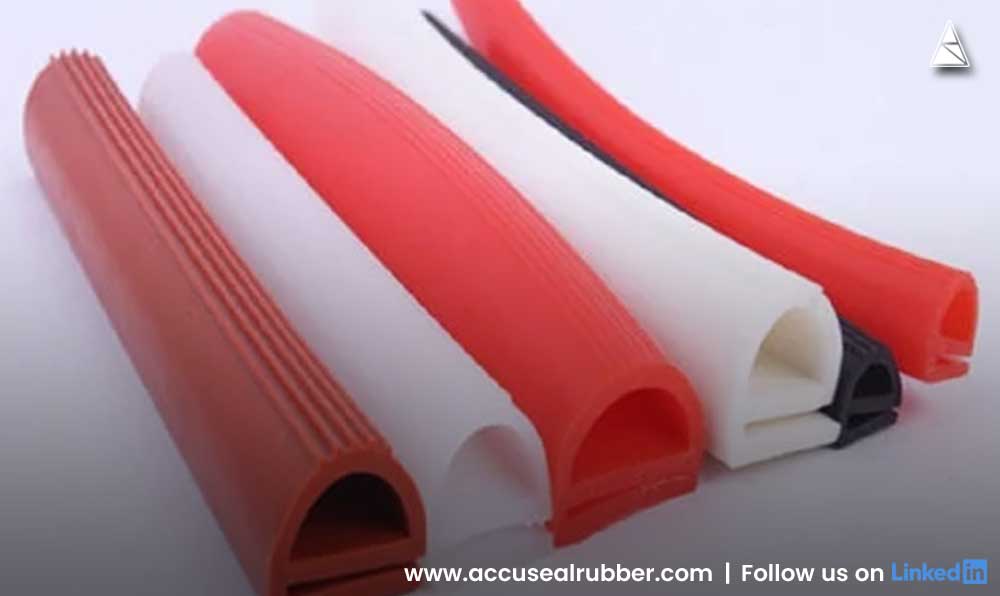When it comes to industrial performance, ordinary materials just don’t make the cut—especially in high-heat environments. That’s where high-temperature-resistant rubber products come into play. These specially engineered materials are built to endure extreme heat, aggressive chemicals, and mechanical stress while maintaining their flexibility and durability. Whether it’s aerospace or oil refining, the right rubber component can mean the difference between efficient operations and costly failures.
In this FAQ blog, we explore the industries that heavily rely on high-temperature rubber products, the benefits of using them, and why choosing the right supplier matters.
FAQ: Industries That Need High-Temperature-Resistant Rubber Products
1. What are high-temperature-resistant rubber products? High-temperature-resistant rubber products are specially formulated elastomers designed to withstand temperatures that exceed the tolerance of standard rubber materials. These products maintain their elasticity, strength, and integrity in high-heat applications, often ranging from 150°C to over 300°C, depending on the formulation.
Common materials include:
-
Silicone Rubber
-
Viton (FKM)
-
EPDM (Ethylene Propylene Diene Monomer)
-
Neoprene
-
Fluorosilicone
2. Why are these products important in industrial applications? In high-heat industrial environments, failure of seals, gaskets, hoses, or O-rings can lead to downtime, safety hazards, or product contamination. High-temperature-resistant rubber ensures consistent performance, extended lifecycle, and compliance with regulatory standards.
3. Which industries use high-temperature-resistant rubber products? Several critical industries depend on these materials for their operations:
a. Aerospace and Aviation Aircraft engines and components are subjected to extremely high temperatures. Silicone and fluorosilicone rubber are used in seals, gaskets, and insulation to ensure safe and efficient flight operations.
b. Automotive and Transportation From turbocharged engines to braking systems, cars and heavy-duty vehicles generate significant heat. High-temp rubber parts are used in under-the-hood applications, fuel systems, and exhaust systems.
c. Oil and Gas Drilling, refining, and transport processes expose materials to high heat and corrosive substances. Viton and FKM rubber are popular choices for seals, hoses, and valves in these extreme conditions.
d. Chemical Processing Manufacturing plants deal with hot, reactive chemicals that require durable materials. EPDM and Viton rubber offer excellent heat and chemical resistance, making them suitable for seals, linings, and pipe insulation.
e. Power Generation Thermal, nuclear, and solar power plants operate at intense temperatures. Rubber components are critical in turbines, boilers, and heat exchangers for safe and consistent energy output.
f. Food and Beverage Processing Although not always associated with high heat, pasteurization, sterilization, and cooking involve elevated temperatures. FDA-approved silicone rubber is used for hygienic seals and hoses in this sector.
g. HVAC and Industrial Equipment Industrial heating systems and HVAC units use high-temp rubber for duct seals, motor insulation, and vibration dampening in hot environments.
h. Marine and Shipbuilding Marine engines and exhaust systems require rubber parts that withstand not only saltwater corrosion but also extreme heat.
4. What are the benefits of using high-temp rubber in these industries?
-
Durability: Withstands wear and tear over prolonged periods.
-
Thermal Stability: Maintains performance at high temperatures.
-
Chemical Resistance: Resists oils, fuels, and harsh chemicals.
-
Flexibility: Performs well even after repeated heat cycles.
-
Cost Efficiency: Reduces maintenance and replacement costs.
5. How do I choose the right type of high-temperature rubber for my industry? Selecting the right rubber depends on several factors:
-
Temperature Range: Know your operating temperatures.
-
Chemical Exposure: Consider the fluids and chemicals involved.
-
Mechanical Stress: Account for pressure, compression, and movement.
-
Regulatory Compliance: FDA, ISO, or industry-specific certifications.
Consulting with a specialized rubber manufacturer or supplier ensures you get the ideal formulation for your specific needs.
6. Can these products be customized for specific applications? Absolutely. Leading rubber manufacturers offer custom solutions in terms of shape, hardness, color, and material blend. Whether you need a heat-resistant gasket for a jet engine or a food-safe hose for high-temp sterilization, custom rubber products can be tailored to meet exact specifications.
7. What should I look for in a high-temperature rubber supplier?
-
Experience: Years in the industry indicate reliability.
-
Certifications: ISO, FDA, and other compliance standards.
-
Customization: Capability to provide tailored solutions.
-
Testing and Quality Assurance: Rigorous quality checks are essential.
-
Customer Support: Quick response and technical assistance matter.
Conclusion: Why Quality Matters Using substandard rubber materials in high-heat environments is a risk no industry can afford. From safety to performance, the benefits of investing in premium high-temperature-resistant rubber are undeniable.
When selecting a trusted partner for these critical components, consider Accuseal Rubber Inc. With decades of expertise in manufacturing and customizing rubber products, Accuseal is known for delivering durable, high-performance solutions that meet stringent industry demands. Whether it’s aerospace precision or food-grade compliance, Accuseal Rubber Inc. is your go-to source for dependable rubber components that stand the heat.

 Nick Parker
Nick Parker